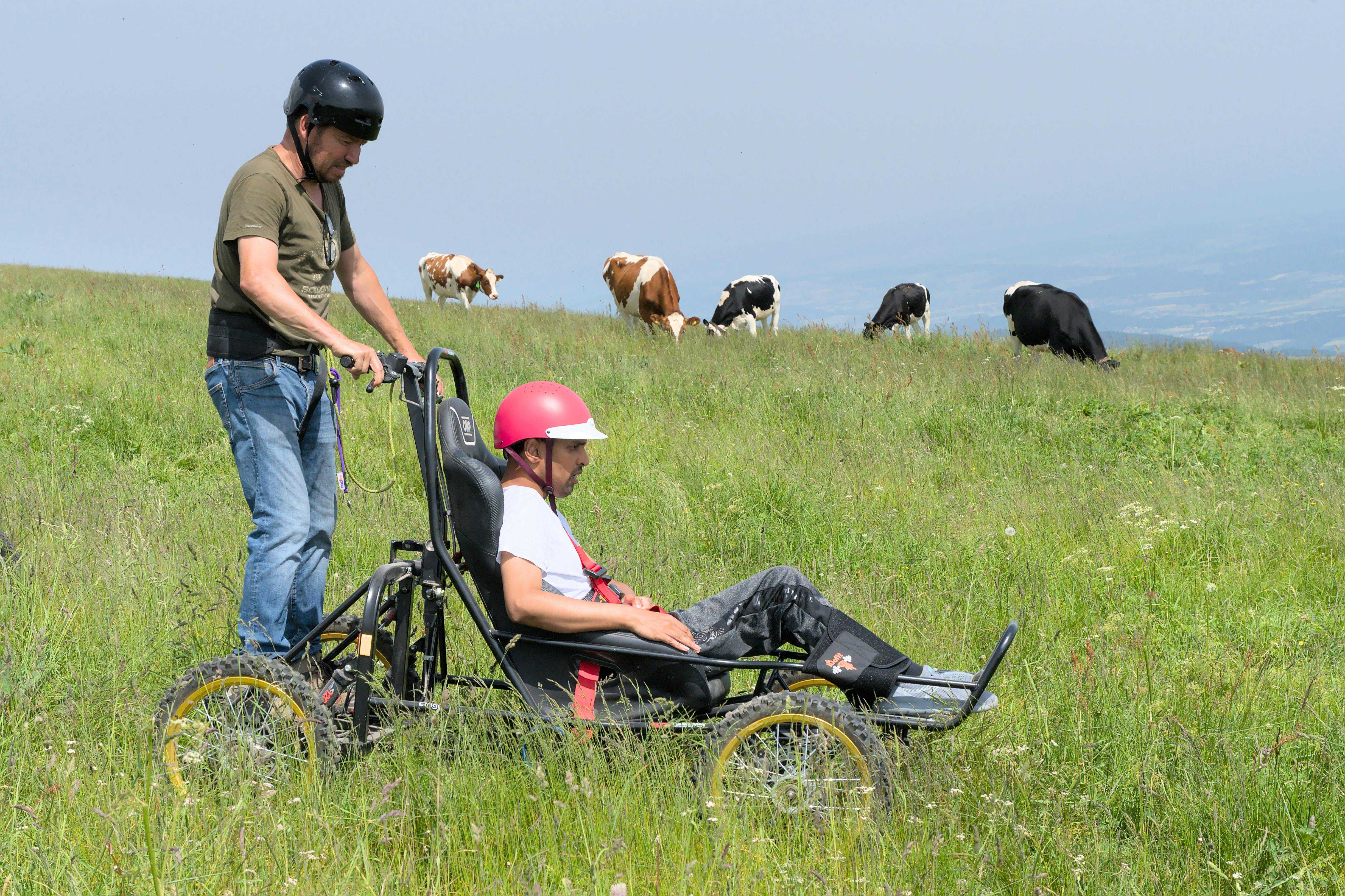Research shows UK outdoor accommodation industry failing disabled community

New research* reveals that suppliers across the UK’s outdoor accommodation sector are failing to address accessibility issues and misconceptions around outdoor travel.
In Pitchup's 2024 survey in collaboration with disability-led inclusive marketing agency Purple Goat, we discovered that:
-
44% of disabled travellers in the UK face accessibility issues during outdoor holidays
-
More than half of disabled people avoid outdoor holidays altogether due to concerns that their access needs will not be met
The UK is home to one of the highest proportions of people with accessibility needs relative to population size (24% of the total population), and the 'Purple Pound' contributes significantly to UK tourism (spend totalled £14.6 billion in 2018**). These statistics highlight a huge gap in the market for disabled people and outdoor accommodation providers alike, and an urgent need for industry-wide improvements.
Our survey showed that members of the disabled community have a strong desire to go on an outdoor holiday, with respondents particularly enthusiastic about the connection to nature (51%), the lure of a tranquil escape (48%), and the affordability of camping, caravanning and glamping options (47%). However, 83% of disabled people who have never taken an outdoor holiday are put off by accessibility concerns, worried that their needs will not be met.
There is a curious misconception for both disabled campers and non-disabled campers. Those who have never been on an outdoor holiday view them as inaccessible in general, but those who have tried an outdoor holiday report high levels of accessibility. For the former, a stay in the outdoors may just be more welcoming than they have been led to believe. When we asked disabled travellers who have previously booked a holiday through Pitchup to rate their experiences of accessibility, 89% believed outdoor holidays to be very or somewhat accessible.
Common challenges for travellers with access needs
Of those who have been on an outdoor holiday before, just under half had experienced accessibility challenges, most commonly:
-
A lack of step-free access
-
A lack of accessible bathroom or shower facilities
-
Challenges with finding sensory support, such as a dedicated quiet space in busy or noisy environments
-
Communication barriers
Although there were some challenges in their stays, 75% of this group were still satisfied with their stay overall. Only 16% found outdoor holidays to be inaccessible, and this was most commonly reported by people with speech disabilities or those who are blind or visually impaired. Respondents who are D/deaf or hard of hearing reported the highest levels of accessibility.
Additionally, people who holiday with children are most likely to have experienced accessibility challenges, with 67% of this group reporting issues. This is an especially important aspect for the outdoor holiday sector to address, as more families choose this kind of holiday while the cost of living crisis continues.
How can the outdoor accommodation industry make changes to welcome more disabled customers?
Overwhelmingly, the insights from our survey showed that more accessibility information is needed across the board, with 63% of respondents wanting more information overall, including verified information (31%).
The disabled community uses a combination of key sources to make a booking, including information available directly from accommodation providers (33%), personal advice or recommendations from friends and family (23%), accessibility review platforms (20%), and social media (19%). What is clear from these findings is that the information available directly from accommodation providers alone does not empower disabled guests to book. Therefore, to improve equity for disabled people in the booking process, the industry as a whole needs to focus on making accessibility information more readily available.
The top five most crucial pieces of information requested include:
-
Bathroom and shower room facilities
-
Entrances and exits to accommodation and site facilities
-
Kitchen facilities, including cooking equipment
-
General campsite or holiday park site access, including facilities such as reception buildings, on-site shops, cafés and entertainment or leisure facilities
-
Pitch location in relation to accessible facilities
Additionally, 39% of respondents said that photos and accessibility user reviews would provide extra information that makes it easier to make a booking, as would the ability to contact sites directly.
Pitchup's accessibility features
In response to this research, Pitchup has released 15 new accessibility filters designed to help sites better promote and give details of their accessible facilities. As a site selects each of the new filters themselves, they are also able to add a detailed description and a photograph of the facility itself. Our aim is for customers to be able to search easily, using a combination of filters that suit their individual access needs.
The filters range from step-free access to wheelchair-accessible bathrooms and showers, along with pitch location, well-lit paths and dedicated quiet spaces and will initially be launched in the UK.
When we tested these new filters with the disability community, 95% of participants agreed the information would be useful and would help them to choose a site to book, with almost half adding that photographs of accessible facilities would further enhance their booking experience.
We are excited to launch these filters to sites and customers and look forward to hearing their feedback so we can continue to evolve and build greater access to the outdoors for all.
Ready to explore the new filters? Your accessible outdoor holiday could be just a few clicks away!
* Survey covered 2,011 respondents from the disabled community
**2018, Visit Britain & Visit England ‘Value of the Purple Pound’ report